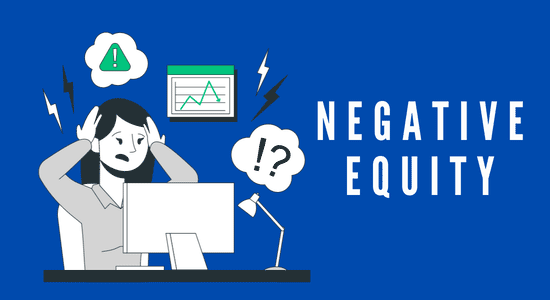Equity release has become increasingly hyped-up in recent years. With all the economic uncertainties, it may sound like a good idea for many of us as a way to access the wealth tied up in our homes. But is it really? Are there any restrictions? Any risks, or alternatives? If we do go for equity release, what can we do with the spare cash?
The remaining years of our lives are passing so quickly so we really want to make the most of it. Let’s get an answer to each question and decide whether equity release is truly the right option for you or not.

What Is Equity Release?
Equity release is where you take out a loan against the value of your home, using your home as security for the loan. Effectively, you sell your home to a financing company now, and you either receive a lump sum or a monthly payment for the rest of your life. You’ll still own your property until you die. The ownership will be surrendered to the financing company when you die. If the home is jointly owned, likewise, the ownership will be surrendered to the financing company only when the last joint owner dies.
This is a short answer. The system is a little more complicated - a few more options are available out there, which I’ll explain now.
How Does Equity Release Work?
Strictly speaking, there are two main types of Equity Release products: lifetime mortgages and home reversion plans;
Lifetime Mortgage
A lifetime mortgage is a type of equity release plan that allows you to release equity from your property while retaining ownership and the right to live in the property. It's a loan that is secured against the value of your property, and the loan and interest are repaid when you pass away or move out of the property.
With a lifetime mortgage, you can choose to receive either;
- a lump sum of money,
- regular income payments, or
- a combination of both.
The loan and interest are rolled up, which means that they are added to the outstanding loan balance and accrue interest over time. The outstanding loan and interest are then repaid from the sale of the property when you pass away or move out.
The amount of equity you can release with a lifetime mortgage depends on various factors, such as your age, the value of your property, and the lender's criteria. Generally, the older you are and the more valuable your property, the more equity you can release.
Home Reversion Plan
With a home reversion plan, you sell a portion or all of your property to a reversion company in exchange for a lump sum of money or regular income payments. The reversion company becomes the owner of the portion of the property you sold, and you retain the right to live in the property rent-free for the rest of your life or until you move out.
When you pass away or move out, the reversion company will sell the property and receive a proportionate share of the proceeds based on the percentage of the property they own.
For example, if you sold 50% of your property to the reversion company, they would receive 50% of the sale proceeds, and the remaining 50% would go to your beneficiaries or estate.
If you sold all of your property to the reversion company, they would receive the full sale proceeds, and your beneficiaries or estate would receive nothing.
With a home reversion plan, you are not the sole owner of the property. This means that you may have restrictions on what you can do with the property, such as making alterations or renting it out. It's also important to consider the impact on your beneficiaries or estate, as they may receive less or nothing from the sale of the property after you pass away or move out.

The Difference Between The Two Options
Here are 4 main things to consider when choosing between the two:
- Ownership: With a lifetime mortgage, you retain ownership of your home, while with a home reversion plan, you sell a percentage of your property, and the reversion company becomes the owner of that percentage.
- Flexibility: A lifetime mortgage offers more flexibility in terms of how you receive the money and how much you can borrow. With a home reversion plan, the amount you receive is based on the percentage of the property that you sell.
- Interest: With a lifetime mortgage, you are charged interest on the amount you borrow, and this interest is compounded over time. With a home reversion plan, you do not pay interest, but you may receive less money upfront than you would with a lifetime mortgage.
- Inheritance: With a lifetime mortgage, you can leave your property to your heirs, but the loan and any interest will need to be repaid. With a home reversion plan, you will not be able to leave the percentage of your property that you sold to your heirs.
Who Is (and Is Not) Equity Release Suitable For?
Equity Release may be suitable for homeowners:
- Over 55: Equity release is generally only available to homeowners over the age of 55. This is because equity release is intended as a long-term solution and is not suitable for short-term borrowing.
- With limited income: Equity release can be an option for homeowners who have limited income and need to supplement their retirement income.
- Who do not want to sell their home: Equity release allows homeowners to access the equity in their property without having to sell it. This can be beneficial for people who have an emotional attachment to their home and do not want to move.
- With a significant amount of equity in their property: Equity release is only available to homeowners who have a significant amount of equity in their property. This means that the value of the property should be higher than the outstanding mortgage.
While it may not be suitable for homeowners:
- Who want to leave an inheritance: Equity release can reduce the value of the estate, which means that there may be less to leave as an inheritance to heirs.
- Who may need to move: Equity release may not be suitable for homeowners who may need to move in the future. For example, if the homeowner needs to move into long-term care, equity release may not be the best option.
- With a small amount of equity in their property: Equity release is only available to homeowners who have a significant amount of equity in their property. If there is not much equity in the property, equity release may not be the best option.
- Who are eligible for other forms of financing: If the homeowner is eligible for other forms of financing, such as a personal loan or a remortgage, equity release may not be the best option.
Inheritance? Who Inherits Your Property?
The impact on inheritance can apply to both home reversion plans and lifetime mortgage plans, although the specific impact may vary.
With a home reversion plan;
As you sell a portion or all of your property to a reversion company, the impact on inheritance is more direct. The reversion company becomes the owner of the portion of the property you sold. When you die, they receive a proportionate share of the proceeds from the sale of the property, which means that the amount available to your beneficiaries or estate will be reduced accordingly.
With a lifetime mortgage;
When you die, the property is sold and the proceeds are used to repay the outstanding loan balance and any interest that has accrued. The remaining equity, if any, is distributed to your estate and beneficiaries.
For example, suppose you took out a lifetime mortgage of £100,000 against your property, and over time, the outstanding balance grew to £150,000. If the property is sold for £300,000 after you pass away, the outstanding loan and interest of £150,000 are repaid to the lender, and the remaining equity of £150,000 is distributed to your estate and beneficiaries.
The beneficiaries are typically named in your will or can be determined by the laws of intestacy if there is no will. They receive the remaining equity after the loan and any associated fees have been repaid. However, the amount of equity left over may be reduced if the outstanding loan and interest have grown significantly over time, which is a key consideration when deciding whether to take out a lifetime mortgage.
What If It Ends Up As Negative Equity?

It is possible for a negative equity situation to occur with a lifetime mortgage when the outstanding loan balance exceeds the value of the property when it is sold after you die. This means that your estate or beneficiaries may not receive any proceeds from the sale of the property, and they may even be responsible for repaying the shortfall if the lender cannot recover the outstanding balance.
However, most lifetime mortgages come with a "no-negative equity guarantee" which means that even if the outstanding loan balance and interest exceed the value of the property, the borrower or their estate will never owe more than the value of the property when it is sold.
This provides some protection against the risk of negative equity and ensures that the borrower or their estate will not be responsible for repaying any shortfall.
What Kind Of Flexibility Is There?
The flexibility of equity release plans can vary depending on the provider and the type of plan. Here are some examples of the flexibility that may be available with equity release:
- Lump sum or drawdown: Some equity release plans offer a lump sum payment, while others offer drawdown payments, which allow you to release funds as and when you need them.
- Voluntary repayments: Some lifetime mortgage plans allow you to make voluntary repayments to reduce the overall interest charges. This can be useful if you have surplus income or receive an inheritance.
- Partial repayments: Some lifetime mortgage plans allow you to make partial repayments of the loan, which can help reduce the amount owed and interest charges.
- Inheritance protection: Some lifetime mortgage plans offer inheritance protection features that allow you to ring-fence a portion of your property value as an inheritance for your beneficiaries.
- Downsizing protection: Some lifetime mortgage plans allow you to repay the loan without incurring early repayment charges if you sell your home and downsize to a smaller property.
- Portability: Some lifetime mortgage plans offer portability, which allows you to transfer the plan to a new property if you decide to move home.
Not all equity release plans will offer these features, however, and they may come with specific terms and conditions. It's essential to carefully review the terms of any equity release plan and seek independent financial advice before making a decision.
The Impact on Inheritance
Borrowing against the value of your home means there’ll be an impact on inheritance. It reduces the amount of “equity” available to your beneficiaries after you pass away. And it all depends on various factors, such as the type of equity release plan you choose and how much you borrow. Here are some ways equity release can affect inheritance:
- Reducing the amount of equity available. For example, if you have a property worth £300,000 and borrow £100,000 with an equity release plan, your beneficiaries will inherit the remaining equity of £200,000.
- Increasing the size of the loan. The longer you have an equity release plan, the larger the loan can grow as the interest accrues. This means that the amount owed can increase over time, reducing the equity available to your beneficiaries.
- Some equity release plans offer inheritance protection features that allow you to ring-fence a portion of your property value as an inheritance for your beneficiaries. This means that you can ensure that a specific amount of equity is available to your beneficiaries when you pass away.
- If you or your beneficiaries choose to repay the loan early, you may incur early repayment charges, which can reduce the amount of equity available for inheritance.
Pros and Cons of Equity Release
Equity release can be a useful financial tool for many homeowners, but like any financial decision, it comes with its own set of advantages and disadvantages. Here are some of the pros and cons to consider before deciding if equity release is right for you.
Pros
- Provides Access to Cash: Equity release allows homeowners to access the equity in their property as a lump sum or regular income. This can be useful for people who need to supplement their retirement income or want to make home improvements, pay off debts, or fund other expenses.
- No Need to Move: With equity release, homeowners can access the value of their home without having to sell it. This can be particularly beneficial for people who have an emotional attachment to their home and do not want to move.
- Flexibility: Equity release products can be tailored to meet the specific needs of homeowners. For example, homeowners can choose to take a lump sum payment or receive regular payments, and they can also choose to make repayments or not.
- Guaranteed Tenancy: Equity release often provides a guaranteed tenancy for life, which can give homeowners peace of mind knowing they can remain in their home for the rest of their life.
Cons
High Fees and Interest Rates: Equity release products often come with high fees and interest rates, which can eat into the equity in the property over time.
- Reduced Inheritance: By accessing the equity in their property, homeowners may be reducing the value of their estate and the amount they can leave to their heirs.
- Impact on Benefits: Releasing equity may impact eligibility for certain means-tested benefits, such as pension credit, council tax reduction, or housing benefits.
- Complicated Products: Equity-release products can be complicated and difficult to understand. It is essential to seek independent financial advice before committing to an equity release plan.
While Equity Release might seem attractive initially given its unique benefits - careful considerations should still be made before making such decisions due to its negative aspects which have been outlined above!
Retirement Interest-Only Mortgages
Retirement interest-only mortgages (RIOs) are a type of mortgage and are not typically considered a form of equity release. While both RIOs and equity release products allow you to borrow against the value of your property, there are some key differences between the two.
With equity release, you typically receive a lump sum or regular payments in exchange for a portion of the equity in your property. This can be done through a lifetime mortgage or home reversion plan, and the loan is usually repaid through the sale of the property after you pass away or move out.
On the other hand, with an RIO, you borrow money against the value of your property and only pay the interest each month. The loan is typically repaid when you sell the property, move into long-term care, or pass away. You retain ownership of your property and any increase in its value, unlike with equity release where you may sell a portion of the property to a lender.
While RIOs are not typically considered a form of equity release, they are a type of mortgage product that may be suitable for those looking to borrow against the value of their property in retirement. It's important to carefully consider the advantages and disadvantages of both RIOs and equity release products before making a decision and seek independent financial advice.
What Is Equity Release? Is It Ever a Good Idea? - Final Words
Whether equity release is a good idea for you depends on your individual circumstances and financial goals. Equity release can be a good option for some people who have significant equity in their homes but limited income or savings. It can provide a way to access that equity and use it to fund living expenses or make home improvements.
However, equity release is not without its risks and drawbacks. The main risks include the potential for the outstanding loan balance to grow over time, reducing the amount of equity left in the property for your beneficiaries, and the potential for negative equity, which means that the outstanding loan balance exceeds the value of the property when it is sold.
Additionally, equity release can be expensive, with interest rates and fees that can significantly reduce the amount of equity you can access. It's important to carefully consider all of the costs and risks associated with equity release before making a decision.
Ultimately, it's important to work with a qualified financial advisor who can help you evaluate your options and determine if equity release is the right choice for you.
How I "Finally" Make Over $7,000 Monthly Income
"The most valuable thing I've ever done!"
